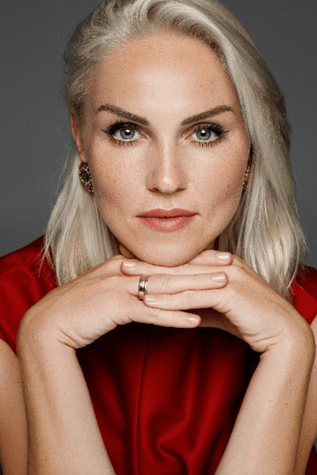
Liene Uresina: Balancing Personal Happiness and Professional Success – The Formula
In a world where achieving personal happiness and professional success often feels like an impossible trade-off, this article shares the inspiring journey of an entrepreneur who claims to have unlocked the secret to balancing both. Seventeen years ago, she found herself caught in the relentless cycle of work, but it was a profound moment spent with her young daughter that served as her wake-up call. This pivotal experience propelled her to create another successful venture—one that aligned with her values and allowed her to dedicate just 20 hours a week to work, while prioritizing her family. Based on mindset and strategic planning, her formula challenges the belief that personal and professional aspirations must compete, offering a fresh path towards equilibrium and fulfilment. In this article, we delve into her unique coaching philosophy, strategies to overcome self-imposed limitations, and the significant role of a supportive community in realizing one’s dreams. Ultimately, this guide aims to empower individuals who aspire to redefine success on their own terms and create a fulfilling life that balances personal and professional pursuits.
You mention that you’ve found a formula for balancing personal and professional aspirations while finding happiness. Can you elaborate on this formula and how it has impacted your life?
In past generations, limiting beliefs have often pitted personal happiness against professional success as an either-or choice. It’s a narrative that suggests you must sacrifice one for the other – either chase wealth, career achievements, and potentially loneliness, or opt for a content family life while living modestly. Many of us have leaned towards the pursuit of professional fulfilment, under the assumption that success would bring recognition and validation.
17 years ago, I ventured into entrepreneurship, establishing two businesses: a fast-food restaurant chain and a coaching business. The difference between the two businesses became evident in how they affected my life. In my first business, I found myself overwhelmed, constantly exhausted, and struggling to find happiness. It was a cycle of constant work with little time for rest. When I took a vacation, I always became sick on the first day because my body wasn’t used to relaxing.
One day, I was at home with my then 3-year-old daughter. We sat on the floor playing games. I wasn’t fully present – I kept glancing at my phone. My daughter noticed and asked, ‘Mommy, why are you always working?’ That was my wake-up call, the moment of clarity that made me realize something had to change.
I didn’t want to be stuck in a cycle of overwork and exhaustion anymore. I wanted to show my kids a better way. I wanted to be there for their special moments. I wanted to be fully present, not just in body, but in spirit, for their achievements, their laughter, and their joys. It was a big shift in how I saw success.
This became the foundation of my journey. I set out to build my second successful venture, one that matched my values and let me help others, while working only 20-hours a week, and spending more time with my family and doing things I actually love. This transformation wasn’t accidental; it was the result of dedicated learning from some of the world’s foremost mentors and a commitment to personal growth.
I’ve put my journey into a formula that I now share with others, so they don’t have to make the same sacrifices. This formula comprises several essential elements: creating an A-player team, cultivating a non-toxic work environment, nurturing a winning mindset, and fostering self-confidence. However, the foundation of this transformation lies in mindset. In my formula, I combine mindset with strategic planning and effective processes to help individuals strike a harmonious balance between their professional and personal lives.
Many women prioritize their families and meaningful relationships over traditional definitions of success. How has this perspective influenced your career and life choices?
I would like to disagree with this statement. In my opinion, the influence greatly depends on the country and culture in which you are born and raised. For instance, in countries like the United States, there exists a prevailing expectation for women to resume work as early as six weeks after childbirth leaving little choice but to earn a living, with the child being cared for by a nanny or grandparents instead of being with their mother. Modern society often places a strong emphasis on evaluating individuals based on their careers and achievements.
I believe it’s not possible to generalize that women universally prioritize their families over their careers, or vice versa. It varies from person to person and is influenced by their upbringing and their own definition of success. For me, success means being able to balance both spending time with my family and achieving new heights in my business. This is also my goal – to show that it’s possible to have both without having to choose one over the other.

Can you share a specific example from your journey where you had to strike a balance between personal and professional aspirations? What did you learn from that experience?
The first business, a food chain, was built together with my husband. By nature, we both tend to take the lead, and that’s why the business thrived. We were recognized as the fastest-growing fast-food chain in Europe, sold franchises abroad, and had a team of nearly 200 people. However, this success came at a price – we practically had no personal life. Our conversations revolved around the business, its challenges, and how to address them, from morning till night, during breakfast, lunch, and dinner. Our discussions centered solely around one thing – our business.
Then, my husband and I went to a personal development event together in Baltimore. There, I had an internal realization that this was it, we were on the verge of collapse, and something needed to change. A few days later, as we walked through New York Central Park, I turned to my husband and confessed that I had made the decision to step away from the business. It was very difficult for me to say. And it was very difficult for him to accept. He was in shock. The entire business rested on our shoulders – he was the visionary, I was the CEO, the manager. Moreover, he didn’t speak Latvian, which was the primary language of communication in our business. He felt like I was leaving him alone. What I told him was this: I’m doing this not against you, but for us, for our relationship. It was an incredibly tough decision for me, but it was the best decision I could make at that moment.
The testimonials highlight the transformative impact of your coaching. Could you tell us more about your coaching philosophy and approach to helping clients achieve their goals?
I’ve come to realize that I possess a unique gift – the ability to see beyond what individuals perceive in themselves. This insight allows me to bring about significant transformations. I approach coaching with directness and a spiritual perspective, integrating the mind and spirit to facilitate profound change.
As a hypnotherapist, I further enhance this process. Clients often choose to continue coaching with me for extended periods because they witness tangible results. Many experience remarkable financial growth, with their income soaring to two, three, or even ten times its initial level. Yet, it’s important to note that it’s not just about financial success; it’s about finding fulfilment within themselves and their families.
In one-on-one coaching, I trust my intuition. When creating a program, I draw from what has proven effective for both me and my clients. I believe in teaching what has worked, avoiding anything untested.
Clients frequently share their successes, and my team and I compile these testimonials. Currently, we have over 30 folders filled with hundreds of affirming transformation stories.

How do you encourage individuals to shift their mindset and redefine success on their own terms, rather than conforming to societal norms?
I don’t encourage anyone. Instead, I lead by example. It’s then their choice to embrace change and step into a life they truly deserve or remain where they are. My role isn’t about proving something or forcing someone into action. It’s about demonstrating through my journey what’s possible for them.
If a person isn’t inclined toward change, they won’t pursue it. What I do is showcase various methods – hypnosis, meditation, subconscious work, strategy. The next step is entirely up to each individual – whether to apply them or not. However, by employing these techniques, a person begins to connect with their soul, their heart, and what truly matters to them. I merely assist in recognizing that everything is within their reach. When a person genuinely grasps this, they become unstoppable. The decision to use it and transform their life ultimately rests in their hands.
The testimonials mention the importance of overcoming limiting beliefs. Can you share some strategies or techniques you use to help clients identify and address these beliefs?
I approach working with individuals in various ways, whether through one-on-one sessions or structured programs. In one-on-one sessions, I can quickly identify and understand a client’s limiting beliefs by observing how they talk and what they say about themselves or their situation. On the other hand, within my programs, I’ve developed a system where I present options through narratives and examples. Following this, I facilitate a Hypno meditation, allowing individuals to recognize their own beliefs and what holds them back.
Certainly, you can also work on a conscious level, for example, by creating positive affirmations. However, it’s the subconscious that requires the change. In the meditations I design, I embed specific words, codes, and a system that accesses a person’s subconscious. This empowers them to independently identify and transform their limiting beliefs.
Building meaningful relationships and connections is a recurring theme in your bio. How do you incorporate this into your coaching process to help clients achieve fulfilment?
A significant portion of entrepreneurs find themselves overworked, burnt out, and struggling to trust their employees. Initially, they enter into business seeking freedom – the autonomy to decide what to do, how to do it, and how much to work. Additionally, they seek opportunities like financial stability and travel. However, when they embark on their entrepreneurial journey, they realize it’s not as straightforward. They have their own gift and talent, which they want to share. Yet, they quickly understand that running a business is not so simple. As they handle the challenges of leading a team, building strong client connections, creating successful marketing and sales plans, and shaping a clear vision for their work, the full weight of these responsibilities rests on them. This shift is crucial, requiring them to make the best choices to drive their business ahead.
Without the right guidance and mentorship, they lose their time, resources, employees, and emotional energy. In some cases, this relentless pursuit can strain family relationships, leaving them unfulfilled despite their efforts. The ‘freedom’ they sought can turn into a prison of their own making. If there’s no one to guide them or show them an example, people end up navigating the business world intuitively, as it’s not something taught in school. Mentors and a healthy environment – these are the connections I’m talking about.
I do not understand why people spend so much time and energy trying to find a formula on their own. For me, it’s about seeking out individuals who have achieved what I aspire to and saying, ‘Hey, teach me.’ That’s why I recommend investing in courses or mentors who not only resonate with you but have already achieved what you aspire to. Imagine this – would you be willing to invest, say, 10k if you knew it could save you 1, or even 5 years of trial and error? Without a mentor, you risk expending precious energy and time testing different strategies. With a mentor, you can easily recoup that investment and more! It’s like a shortcut – a guide who shows you how to reach your goals more swiftly and effectively.
That’s why I recommend taking courses with mentors who resonate and share an aligned system. It’s a shortcut to work less and integrate with life. That’s how you transition from being an operator to becoming a true business owner. Often in business, people tend to micromanage every little detail, falling into the ‘operator’ mindset. This is why we see so many unhappy mothers who can’t be present for their children and spouses because everything revolves around and is consumed by their businesses. They lose touch with their femininity, their core, and are left perpetually exhausted and unfulfilled. However, when you make the shift from operator to owner, you regain control over your time, your energy, and your priorities. Instead of drowning in the minutiae, you’re able to focus on the bigger picture, on growing and steering your business towards success. This shift not only benefits your professional life but ripples into your personal life as well. You rediscover the joy in your relationships, you rekindle your own sense of self, and you find a newfound vitality. It’s a transformative journey that allows you to not only run a business but truly own it, on your terms, in a way that aligns with your values and aspirations.
Could you provide an example of a client success story where your coaching played a significant role in their personal and professional growth?
I have an abundance of stories and examples where people have truly transformed their lives – closing multimillion-dollar business deals, manifesting homes, money, cars, promotions, and even meeting their life partners and entering a state of bliss! One of my long-term 1:1 clients Alex, who is the owner of a consulting agency specializing in collaborations with film producers, musicians, and brand development. When she approached me, she was earning around $300,000 annually, yet she grappled with feelings of inadequacy, self-doubt, and a lack of vitality and joy in life. Her self-esteem was at a low, and she perceived others as more successful. Additionally, she carried a complex relationship with money rooted in her upbringing, coupled with limiting beliefs that hindered her financial success. We worked on enhancing Alex’s mindset, bolstering her self-esteem, and dismantling her limiting beliefs. Within months, a profound transformation occurred, with Alex radiating newfound energy and joy. Her relationships with family and children flourished, and her self-confidence soared. In her industry, she rose to a position of undeniable influence. Her success is a testament to the monumental shifts we made in her mindset, team dynamics, and limiting beliefs.
In my programs, individuals experience equally extraordinary transformations. There are those who attract abundance following my programs, others who liberate themselves from past traumas through meditation, and some who approach me with tears of revelation after my public speaking. There are even individuals who have completely revolutionized their lives after reading my book! Anyone who not only listens but actively engages and applies what they learn attains what they need most at that particular moment.
Your coaching focuses on both personal and professional development. Can you explain how these two aspects are interconnected in achieving overall fulfilment?
I learned this the hard way within my own family. We were on the brink of divorce; all we had were our business and our achievements, but there was no true fulfilment. I wholeheartedly agree with the saying, ‘Success without fulfilment is the ultimate failure.’ That’s exactly it.
My journey began with healing my own life and family. I firmly believe that you must mend your own path before guiding others. As I healed, I made it my mission to help others strike a balance between external success and their personal lives.
Recently, I spoke at a conference and was asked about unhappy relationships coexisting with a thriving business. Yes, they can coexist, because everything revolves around the business. The focus is on the business, not on the relationships. And where your focus goes, your energy flows. I asked the person to consider what their relationship with their loved one would be like if they invested as much energy and focus on their relationship as they do in their business. It was an ‘aha’ moment for them because it’s true – we tend to assume that relationships will thrive on their own. No, they won’t. You have to nurture and improve them.
As a high achiever, I value recognition, I enjoy financial success, and I revel in accomplishments. But as a woman, I would never be truly happy if I had a successful business and an unhappy family. For me, family will always be the priority. There might be people for whom this isn’t important, but the people who come to me are precisely those who want both – a fulfilled, happy family and a successful business. That’s where I teach the formula. I work 20 hours a week, run a successful business, and maintain a happy relationship. I also teach manifestation – I manifest trips, a new destination every month, showing my children the world while my business continues to generate income. It’s my lifestyle, it’s my formula – the success and wealth formula, and that’s what I teach in my programs – demonstrating that it’s possible.
There are so many successful billionaires who are unhappy, lonely, depressed, and plagued by self-esteem issues. I refer to it as ‘happy money’ and ‘unhappy money.’ ‘Happy money’ is when you contribute, share with your loved ones, experience and gain fulfilment from it, all while being fulfilled in your personal life. I want to show that money isn’t inherently bad.
In your experience, what role does a supportive community play in helping individuals pursue their dreams and find happiness? How can people create or find such communities in their own lives?
This is a significant topic. The saying “You are the average of the five people you spend the most time with” is something I didn’t grasp initially. I was surrounded by many toxic individuals, especially as I gained recognition. I noticed that my so-called “friends” didn’t support me – quite the opposite, they sought ways to undermine me. It’s very difficult to sever ties with friends whom you’ve known for years.
That’s why now I live by this formula – for every one negative person, you need five positive people. You don’t have to cut your family members out of your life; you simply need to reduce the time you spend with them and instead invest it with people who inspire you.
Before I started Liene Uresina Coaching, I didn’t have my own community; I felt like the black sheep. I needed to find my place, my tribe. That’s why I began building this community myself. I knew that naturally finding such like-minded individuals is very challenging. In every program I create, I establish this community, and it’s a significant part of the program’s value. In fact, it’s one of the most substantial components.
In each of my programs, participants have their support system and accountability. People find their support partners on my platforms, where they communicate, and share their achievements, their ups and downs. Some even meet in person and become good friends or business partners. I believe that the environment you are in is a big part of your success. Imagine this – if you wanted to lose weight, would it be easier with people who eat burgers, don’t exercise, or with those who care about their health, exercise, and have this mindset? I believe we have to surround ourselves with a supportive community with shared values and drive. When I changed this aspect of my life, my income and success started to increase dramatically.
Currently, I might not have many friends, but those I have, I can rely on, and trust, and it’s unbelievably gratifying to know that you’re not among toxic people.






